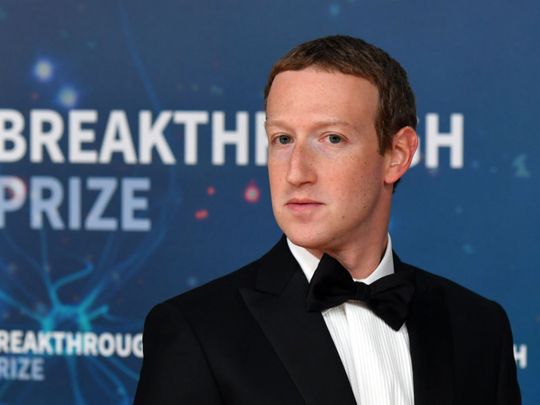
When Twitter’s chief executive, Jack Dorsey, recently announced that Twitter would no longer host political advertisements, he scored points with those who lament the ways social media platforms have polluted political culture.
At Facebook, Mark Zuckerberg responded by reaffirming that his company would continue to distribute political ads without fact-checking them.
“In a democracy, I don’t think it’s right for private companies to censor politicians, or the news,” Zuckerberg noted.
Facebook’s decision to refrain from policing the claims of political ads is not unreasonable. But the company’s officers have been incompetent at explaining and defending this decision.
Zuckerberg spouts disciplined, moulded public-relations pabulum about how Facebook stands for openness and free speech, all the while censoring content to satisfy governments that have heavy speech restrictions. In countries with more speech freedom, the platform downgrades and deletes content and accounts for reasons that remain mysterious.
If Facebook’s leaders were willing to level with us, they would stop defending themselves by appealing to lofty values like free speech.
They would focus instead on more practical realities: Facebook is incapable of vetting political ads effectively and consistently at the global scale. And political ads are essential to maintaining the company’s presence in countries around the world.
What’s not political?
Might Facebook ban political ads altogether, like Twitter has? Zuckerberg could concede that it’s not an easy task. What’s not political? If an ad calling for a carbon tax is political, is an ad promoting the reputation of an oil company political?
In an effort to provide transparency to political ads in the United States, Facebook has already shown how bad it is at distinguishing between political accounts and apolitical accounts, often mislabelling news outlets, think tanks and university departments as political entities. Those are the false positives we know of. We have no idea how many false negatives Facebook has let slip through.
Twitter, as the communication scholars Shannon McGregor, Daniel Kreiss and Bridget Barret have shown, is also bad at segregating the political from the apolitical. They found Twitter ads funded by foreign governments were not included in Twitter’s political ad archive. So there is a good chance that Twitter will fail at its declared task.
Facebook could also defend political ads by conceding that it must continue the practice to maintain its status and markets. Besides Trump, who spent $70 million on Facebook ads in 2016 (far more than his main rival, Hillary Clinton), the pro-Brexit Conservative Party in Britain, Prime Minister Narendra Modi’s party in India, President Jair Bolsonaro’s party in Brazil and President Rodrigo Duterte’s party in the Philippines all relied on Facebook and Facebook-owned WhatsApp to achieve and maintain power.
All of those countries are major Facebook markets, and they all could threaten Facebook with regulatory backlash if the company disappointed their leaders.
Over all, Facebook has no incentive to stop carrying political ads. Its revenue keeps growing despite a flurry of scandals and mistakes. So its leaders would lose little by being straight with the public about its limitations and motives. But they won’t. They will continue to defend their practices in disingenuous ways until we force them to change their ways.
We should know better than to demand Facebook’s leaders to do what is not in the best interest of the company. Instead, citizens around the world should demand effective legislation that can curb Facebook’s power.
The key is to limit data collection and the use of personal data to ferry ads and other content to discrete segments of Facebook users — the very core of the Facebook business model.
This task would be easier in some countries than others. The First Amendment of the US Constitution severely limits policy options in America. But here’s something Congress could do: restrict the targeting of political ads in any medium to the level of the electoral district of the race.
Tailoring messages for African-American voters, men or gun enthusiasts would still be legal, as this rule would not govern content. But people not in those groups would see those tailored messages as well and could learn more about their candidates. This law would apply not just to Facebook, Twitter and YouTube, but also to all targeted ads delivered via cable boxes or devices.
Currently, two people in the same household can receive different ads from the same candidate running for state senate. That means a candidate can lie to one or both voters and they might never know about the other’s ads. This data-driven obscurity limits accountability and full deliberation.
If the same political ads were to reach everyone in a state, district or even country, they would not just appeal to marginal constituencies, might not tend toward extremism, and could not get away with lies quite so easily. Journalists, citizens and political opponents would see the same ads and could respond to them.
A reason to be concerned about false claims in ads is that Facebook affords us so little opportunity to respond to ads not aimed at us personally. This proposal would limit that problem.
The conversation must start at the recognition that these powerful, global companies have no need to pander to our complaints and no incentive to do business any other way. We can’t expect corporate leaders to do anything but lead their corporations. We can’t expect them to be honest with us, either. We must change their businesses for them so they stop undermining democracies.
—New York Times News Service
Siva Vaidhyanathan is a cultural historian and media scholar. He teaches Media Studies at the University of Virginia.










